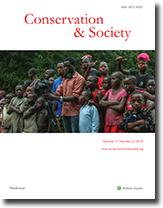"Recognising Land Rights for Conservation? Tenure Reforms in the Northern Sierra Madre, the Philippines"
The authors provide an empirical study of the conservation strategy adopted in the northern Sierra Madre, the Philippines, and criticize the assumptions behind the main legalistic interventions.






